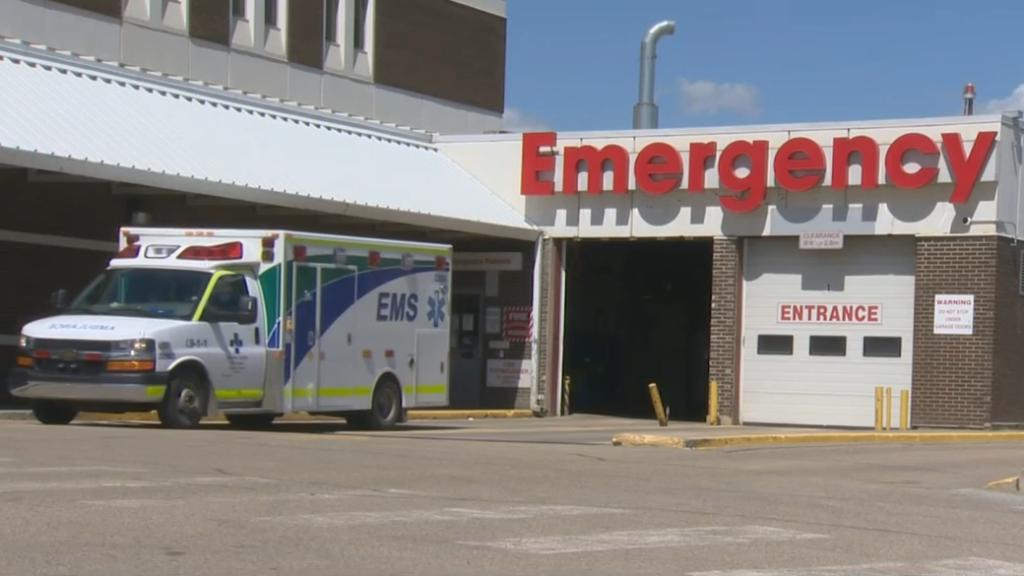Hyperloop idea losing traction in Alberta
Posted Nov 26, 2019 4:36 pm.
Last Updated Nov 26, 2019 4:55 pm.
This article is more than 5 years old.
CALGARY (660 NEWS) — A French company wants to modernize mass transportation in Alberta by developing a high-speed link between Calgary and Edmonton, but it appears there is less appetite for it among the new provincial government.
The CEO of TransPod said they had received a green light from the past NDP government to test out a hyperloop on a 10-kilometre stretch of land south of Red Deer, but discussions with the United Conservative Party have been stopped dead in the tracks.
“Hopefully, they will change their mind, but from the initial feedback I have, this is not something they are interested in,” said Sebastian Gendron, who indicated he had discussions with Premier Jason Kenney’s principal secretary David Knight-Legg.
Gendron added that while the technology still has a ways to go, they could feasibly have a link between Alberta’s two biggest cities by 2030, offering the fastest and cheapest option for passengers and commercial companies.
“You could travel from Calgary to Edmonton in 30 minutes,” said Gendron. “You can not only transport passengers, but you can transport goods as well. Everything sensitive to time. So you will contribute, as well, to removing some trucks from the road.”
Think of a hyperloop as a futuristic monorail, except passengers and goods are transported in an enclosed vacuum tube also to eliminate wind resistance.

TransPod’s website says, theoretically, they could travel at speeds over 1,000 km/h, and it would cost $80 for a trip.
Not only is it faster, but the hyperloop could also reduce greenhouse gas emissions as well.
In addition, Gendron said that this could be beneficial to the economy.
“In the initial phase, we’re looking at $100 to $200 million investment from the private sector in the province to create jobs,” he said.
TransPod also has plans to establish links in eastern Canada — between Toronto, Ottawa and Montreal — as well as numerous cities in the United States, Mexico, Europe, Asia and Australia.
Gendron believes they have building traction in the United States for these plans, and there could be potential in Canada. Still, it all relies on the proper investment and interest from relevant governments.
Transportation Minister Ric McIver confirmed the lack of interest from Alberta on Tuesday during a press conference announcing a review of photo radar devices.
“We have no plans that I’m aware of to get involved in a hyperloop,” McIver said in Edmonton. “What I think I know is a hyperloop is very expensive, and I think if we can get data…then we should pay attention to that without putting Alberta taxpayers through the expense of building one.”
A statement from the Ministry of Transportation added they have not received any proposal from TransPod, but would review it if and when they receive it.
Another statement from Transport Canada indicates there could be some potential.
“The Government of Canada is working to modernize its transportation sector through updated regulations, investments in infrastructure, and the promotion of new transportation technologies. These initiatives are part of Transportation 2030, the long-term strategic plan for Canada’s transportation system.
The pace of innovation in the transportation sector continues to accelerate. Transport Canada has a crucial role to play in understanding the implications that emerging and disruptive technologies will have on the safety, efficiency and environmental performance of Canada’s transportation system.
Transport Canada has launched a preliminary study to be better informed on the safety, technical, operational, economic, and regulatory aspects of hyperloop. The initial feasibility study of the economic, safety, and efficiency considerations of hyperloop is part of ongoing work to investigate how new technologies can contribute to Canada’s transportation system.”
Gendron added that they want to make it clear they are ready to invest serious money in the province; they just need the mutual interest.
“What we need to move forward is that we need to provide those financial institutions a path to a contract to be able to build that full line.”








